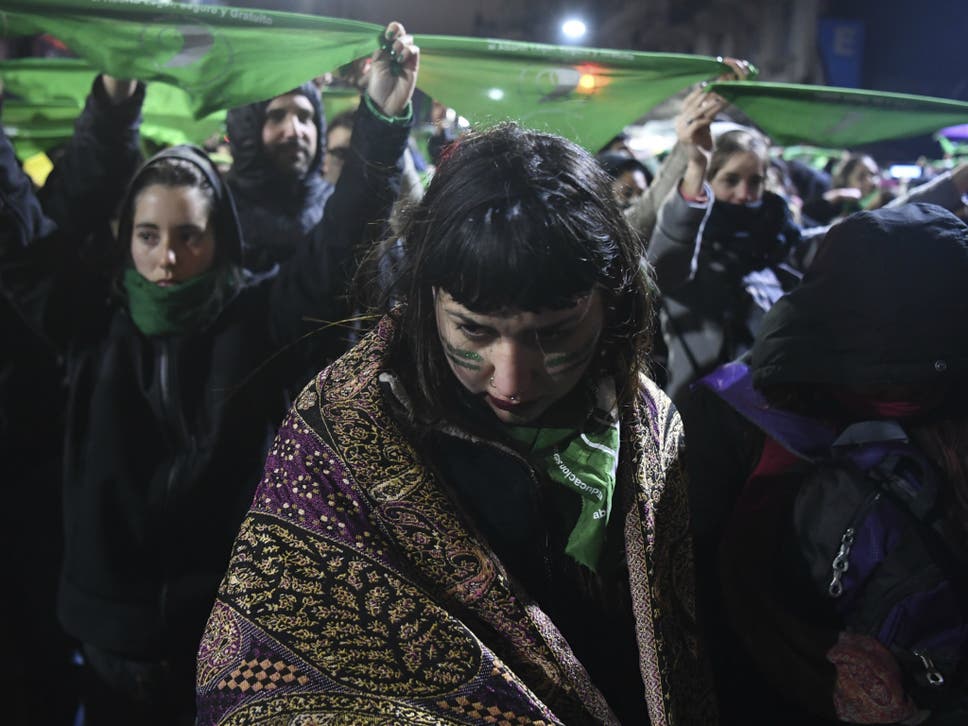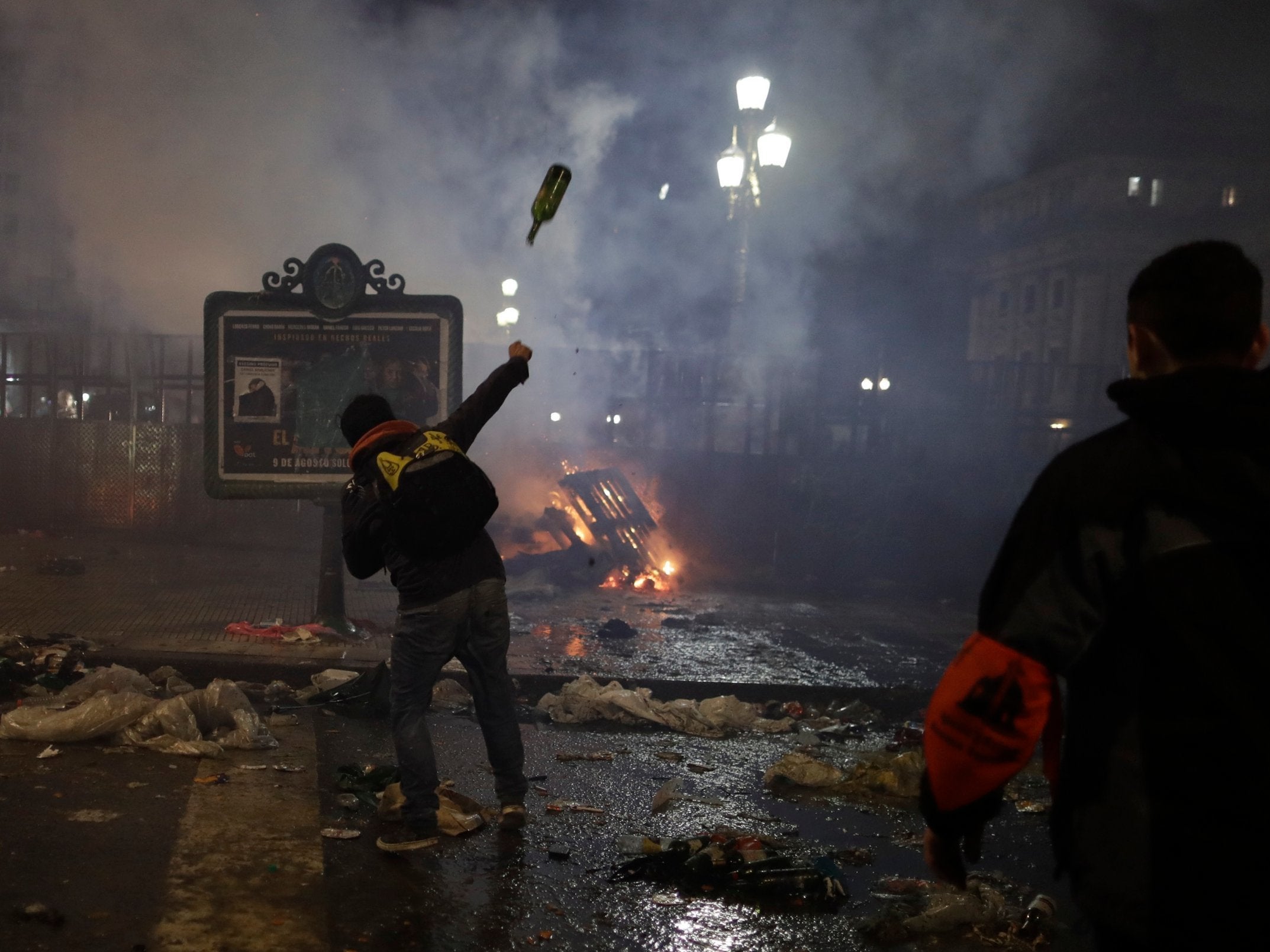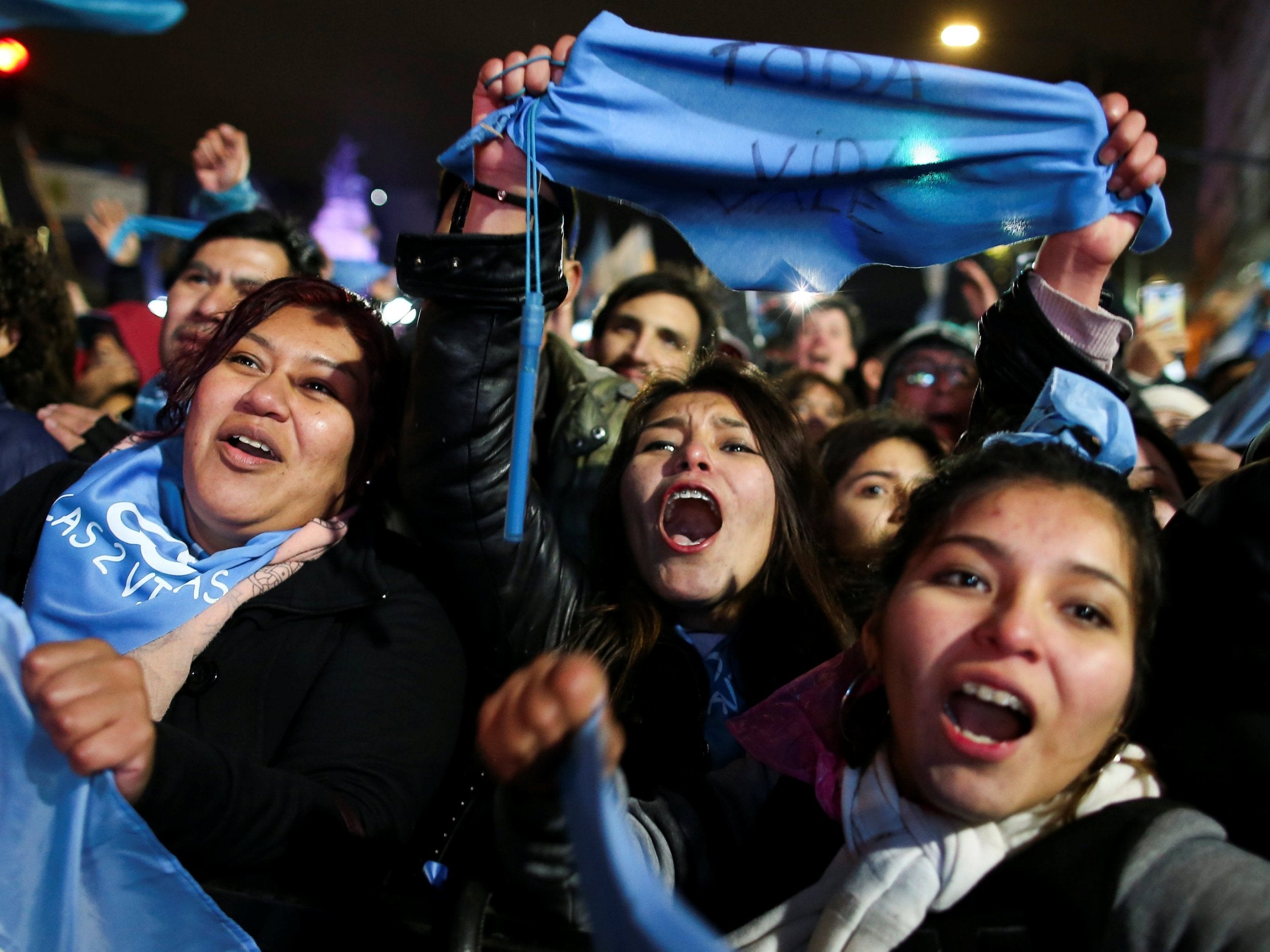
Activists have promised to continue the “unstoppable” momentum towards abortion rights in Argentina, despite the country’s Senate voting down a bill to legalise elective abortions.
In June, the lower House had passed a measure to make the procedure legal during the first 14 weeks. Legislators in the Senate debated for more than 15 hours before voting 38-31 against the motion, highlighting the continuing power of Roman Catholic Church in the home country of the current pontiff, Pope Francis.
However, Jessie Clyde, director of Grantmaking and International Partnerships at the International Women’s Health Coalition, told The Independent the “women’s movement is unstoppable” and there is a plan to push for another vote in 2019.
“There is no going back. Women’s rights activists will continue to mobilise and those who refused to listen to their demands will pay a political price,” she said.
In Argentina, abortion is only allowed in cases of rape and risks to a woman’s health. Thousands of women, most of them poor, are hospitalised each year for complications linked due to unsafe abortions.
According to experts, the Senate decision could echo across South America, where anti-abortion forces remain strong as they tout ties to Catholic Church despite the religion losing influence amid growing secularisation and a number of sex abuse scandals.
Ahead of the vote, President Mauricio Macri said “regardless of the result... democracy wins”.
He had originally been opposed to the bill, but he agreed ahead of the House vote he would not exercise veto power should both houses pass it.
After the vote, Mr Macri said that the debate would continue. The government is also expected to include a measure in the penal code that would decriminalise abortion, although it would not legalise the practice.
“We’ve shown that we have matured as a society, and that we can debate with the depth and seriousness that all Argentines expected,” Mr Macri added.
Even before the debate began and for the duration, thousands of supporters of legalisation donned green handkerchiefs and sat outside Congress in Buenos Aires.
Opponents of the measure wore the light blue of the Argentine flag and all braved winter’s heavy rain and cold to watch the debate on large screens set up outside the building.
“It’s not about religious beliefs but about a humanitarian reason,” Cardinal Mario Poli, the archbishop of Buenos Aires, told churchgoers at a “Mass for Life” at the Metropolitan Cathedral on the eve of the vote. It was the church of Pope Francis during his tenure as the archbishop of Buenos Aires. “Caring for life is the first human right and the duty of the state,” Cardinal Poli added
If women need an abortion in Argentina, there is a legal hurdle: applying for permission from a judge who can either grant or deny it. There is often no guidance for judges or abortion providers, particularly in rural districts, about what they are legally obligated to do.
It leaves the approval of abortions up to chance, depending on where the woman lives. Critics have said this adds an unnecessary burden on the women, particularly poor women, and adds to delays in getting the sometimes time-sensitive procedure.
In the past 13 years, six separate bills have been brought to Congress on the matter but the June bill had been the first one to successfully pass through the House.
For months ahead of the latest vote, hundreds of doctors in Argentina had staged anti-abortion protests while feminists and other groups led even larger demonstrations in support of the measure, often wearing green that symbolises the pro-abortion movement, or red cloaks and white bonnets like the characters from the novel-turned-television series The Handmaid’s Tale.
Activists estimate that 3,030 women in Argentina have died of illegal abortions since 1983.
“Let’s recognise that we’re facing a public health tragedy,” said Magdalena Odarda, a senator for Rio Negro province.
“We’re not deciding abortion yes or no. We’re deciding abortion in a hospital, or illegal abortion, with a clothes hanger, or anything else that puts a woman in a humiliating, degrading situation – a real torture,” she said.

The Senate vote has “disappointed” women in Argentina, Ms Clyde said after hearing from activist groups all over the country, but noted they remain “strident”.
“They are confident that change is coming sooner rather than later. The Senate may underestimate the power of the women’s movement, but this fight is not over,” Ms Clyde said.
Part of the reason for her confidence is that the tie between the reproductive rights movement and the women calling for an end to generations of gender-based violence in the country – called “Ni Una Menos,” or “not one less”.
Françoise Girard, president of the International Women’s Health Coalition, previously told The Independent after the June House vote what helped the pro-choice movement immensely was that Ni Una Menos framed these debates as a “democratic debt... owed to women” as part of their rights as citizens in the Argentinian democracy.
However, as Ms Clyde noted, women in the movement are cognisant of what a “powerful force” the Catholic Church has been in the country, even amid sexual abuse scandals and waning support among young people.

Anti-abortion rights activists celebrate the lawmakers vote(Reuters)
Part of the issue is the growing income inequality in the country and differences between urban and rural populations.
“While the Catholic Church has an outsized influence, this vote is also about privilege,” Ms Clyde explained.
She added: “This was a vote against poor women, against rural women. Women of means can always pay for an abortion. For wealthy women in Buenos Aires and other cities this changes little, but for poor women, it’s devastating.”
Advocates also said the risk of illegal abortions can be dramatically reduced with proper legal guidelines like this bill because abortions are not altogether uncommon in the South American nation. The Ministry of Health reported “500,000 clandestine or illegal abortions are performed there each year in a population of approximately 44 million people,” news outlet Vox said.
There were nearly 250 maternal deaths in Argentina in 2016 and 43 were caused by abortions. Ms Girard noted that makes it the “leading cause of maternal mortality,” based on statistics from the health ministry.
Activist groups have already planned on bringing political pressure on House and Senate members for the 2019 legislative session.
Associated Press contributed to this report







